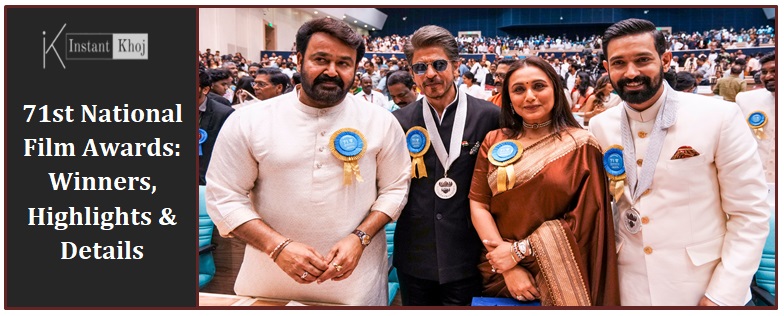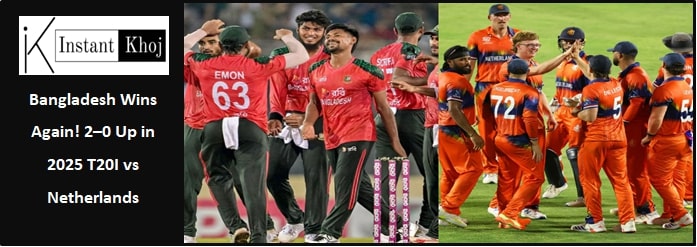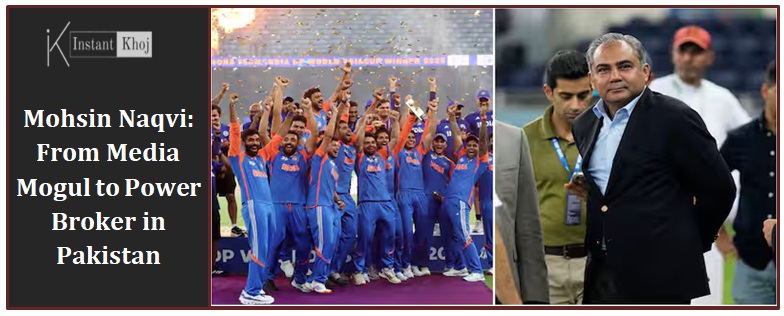Indian cinema has always been a vibrant, diverse tapestry reflecting the country’s myriad cultures, languages, and stories. Every year, the National Film Awards serve as a prestigious platform to honor the outstanding contributions of artists, technicians, and filmmakers across the nation. The 71st National Film Awards, held in 2025, was no exception. This edition not only celebrated the cinematic excellence of 2023 but also marked significant milestones in the careers of some of India’s most beloved film personalities.
In this comprehensive article, we delve into the highlights, winners, and the cultural significance of the 71st National Film Awards, reflecting on how this ceremony encapsulated the spirit of Indian cinema.
Understanding the National Film Awards: A Brief Overview
Before we dive into the details of the 71st edition, it’s worth understanding what the National Film Awards represent. Instituted in 1954, these awards are presented annually by the Directorate of Film Festivals, under the Ministry of Information and Broadcasting, India. Unlike many commercial film awards, the National Film Awards are government-backed and emphasize artistic merit, technical excellence, and social relevance.
They honor films across all Indian languages, ensuring regional cinema receives its due recognition alongside Bollywood and other mainstream industries. The awards are adjudicated by a national panel of judges — seasoned filmmakers, critics, and artists — who meticulously review submissions to select winners.
The Venue and Ceremony
The 71st National Film Awards ceremony was held on September 23, 2025, at the historic Vigyan Bhawan in New Delhi. Vigyan Bhawan, known for hosting numerous government and cultural events, provided a dignified backdrop for the celebration.
The awards were presented by the President of India, Droupadi Murmu, underscoring the importance of cinema as a cultural force. The event was graced by prominent figures from the film industry, government officials, and cinema enthusiasts, making it a night of glamour and heartfelt tribute.
Major Winners and Their Triumphs
Best Feature Film: 12th Fail
The top honor of Best Feature Film went to the Hindi-language film 12th Fail, directed by Mukesh Chhabra. The film poignantly explores the challenges faced by students from marginalized backgrounds in India’s competitive educational system, highlighting themes of perseverance, inequality, and hope.
12th Fail stood out for its sensitive storytelling and strong performances, particularly by lead actor Vikrant Massey, who portrayed the protagonist with authenticity and emotional depth. The film’s win was widely praised as a refreshing change from typical commercial cinema, emphasizing socially relevant narratives.
Best Actor (Joint Winners): Shah Rukh Khan & Vikrant Massey
One of the most talked-about moments of the ceremony was the Best Actor award, which was jointly awarded to two actors:
-
Shah Rukh Khanfor his powerhouse performance in Jawan. After a prolific career spanning over three decades, Khan received his first National Award for his dual role in this high-octane action thriller directed by Atlee. His nuanced portrayal of complex characters reaffirmed his position as the “King of Bollywood.”
-
Vikrant Masseyfor 12th Fail. Massey’s dedication and compelling depiction of a struggling student striving against all odds made him a deserving recipient. His win highlighted the National Film Awards’ commitment to recognizing both established stars and emerging talent.
Best Actress: Rani Mukerji for Mrs. Chatterjee vs Norway
Veteran actress Rani Mukerjiwas honored with the Best Actress award for her remarkable role in Mrs. Chatterjee vs Norway. The film portrays a mother’s courageous fight against the Norwegian child welfare system, which attempted to separate her from her children.
Mukerji’s portrayal was widely acclaimed for its emotional intensity and realism, earning her the prestigious award after nearly 30 years in the industry. Her win was celebrated as a tribute to perseverance and artistic growth.
Best Director: Sudipto Sen for The Kerala Story
Sudipto Sen took home the Best Director award for The Kerala Story, a film based on controversial real-life events involving religious conversion in Kerala. Sen’s sensitive handling of a sensitive subject and his directorial vision earned him recognition, despite the film’s polarizing nature.
Dadasaheb Phalke Award: Mohanlal
The Dadasaheb Phalke Award— India’s highest honor for lifetime contribution to cinema — was bestowed upon Malayalam cinema legend Mohanlal. This award recognized his extraordinary career spanning over four decades, marked by versatility and commitment to the art form.
In his acceptance speech, Mohanlal dedicated the honor to the Malayalam film industry and expressed deep gratitude. His recognition was a highlight, acknowledging regional cinema’s profound impact on Indian culture.
Recognizing Regional Cinema: A Diverse Tapestry of Excellence
The National Film Awards have always emphasized the importance of regional cinema. The 71st edition was no different, honoring exceptional films across various Indian languages:
-
Best Film in Hindi: Kathal: A Jackfruit Mystery — A quirky mystery-comedy that charmed audiences with its unique storyline and cultural flavor.
-
Best Film in Telugu: Bhagavanth Kesari — A gripping family drama that resonated with Telugu-speaking audiences.
-
Best Film in Tamil: Parking — An ensemble drama exploring human relationships with subtlety.
-
Best Film in Punjabi: Godday Godday Chaa — A cultural celebration with a blend of humor and social commentary.
-
Best Film in Odia: Pushkara — A poignant narrative deeply rooted in Odia traditions.
-
Best Film in Marathi: Shyamchi Aai — A heartfelt tale centered on mother-son relationships.
-
Best Film in Malayalam: Ullozhukku — An intense drama delving into complex emotions.
-
Best Film in Kannada: Kandeelu: The Ray of Hope — An inspiring story of resilience.
These awards reinforce the rich cinematic heritage India boasts beyond Bollywood, showcasing stories from different regions and linguistic backgrounds.
Honoring the Supporting Cast and Technical Excellence
The 71st National Film Awards also acknowledged the invaluable contributions of supporting actors and technical experts:
-
Best Supporting Actor: The award was shared by Vijayaraghavanfor Pookkaalam (Malayalam) and MS Bhaskarfor Parking (Tamil), recognizing their nuanced performances that enriched their respective films.
-
Best Supporting Actress: Awarded to Urvashi for Ullozhukku (Malayalam) and Janki Bodiwala for Vash (Gujarati), these actors brought depth and authenticity to their roles.
-
Best Non-Feature Film: Flowering Man, a documentary, was honored for its storytelling and cinematic craft, highlighting the National Film Awards’ broad scope.
Technical categories like cinematography, editing, music, and screenplay were also celebrated, although the spotlight remained on the winners who pushed creative boundaries in storytelling.
Prize Money and Honors
The awardees received the prestigious Rajat Kamal (Silver Lotus) medallions along with certificates of merit. Additionally, monetary prizes were awarded to acknowledge the excellence:
-
Best Actress Rani Mukerji received ₹2 lakh.
-
Best Actors Shah Rukh Khan and Vikrant Massey were awarded ₹1 lakh each.
This combination of recognition and financial support underlines the government’s commitment to fostering quality cinema.
Broadcast and Public Reception
The ceremony was broadcast live on the DD News YouTube channel, making it accessible to a wide audience across India and abroad. The event was praised for its smooth organization, with heartfelt speeches and joyous moments shared by winners.
Social media buzzed with congratulations for the winners, especially Shah Rukh Khan and Rani Mukerji, whose victories were seen as overdue yet well-deserved acknowledgments.
The Cultural Impact of the 71st National Film Awards
The 71st National Film Awards reflect more than just a ceremony; they embody the evolution of Indian cinema and society. Here are some key takeaways:
-
Diversity & Inclusion: The awards spotlighted regional films and lesser-known narratives, showing an embrace of India’s cultural plurality.
-
Social Awareness: Films like 12th Fail and Mrs. Chatterjee vs Norway highlighted social issues, reinforcing cinema’s role as a tool for dialogue and change.
-
Recognition of Talent: Veterans like Mohanlal and Rani Mukerji were honored alongside newcomers like Vikrant Massey, bridging generations of talent.
-
Encouragement of Quality: By rewarding artistic merit over commercial success alone, the National Film Awards encourage filmmakers to focus on storytelling and craft.
Looking Ahead: The Future of Indian Cinema
As Indian cinema continues to grow on the global stage, the National Film Awards remain a crucial institution for recognizing and encouraging excellence. The 71st edition set a high bar, blending tradition with modernity and honoring films that challenge, entertain, and inspire.
With new technologies, changing audience tastes, and a globalized film industry, future National Film Awards will likely continue evolving, but their core mission—to celebrate the best of Indian cinema—will remain steadfast.
Final Thoughts
The 71st National Film Awards were a grand celebration of talent, diversity, and storytelling. From Shah Rukh Khan’s much-awaited recognition to the emotional performances of Rani Mukerji and Vikrant Massey, the ceremony was a testament to the enduring power of cinema to reflect and shape society.
As we applaud these achievements, we also look forward to new stories and artists who will carry Indian cinema forward, continuing the rich legacy honored by the National Film Awards.
Also Read:
Bollywood Star Katrina Kaif Announces Her Pregnancy Today
FollowCurrent AffairsonInstantkhoj for more latest stories and trending topics.




